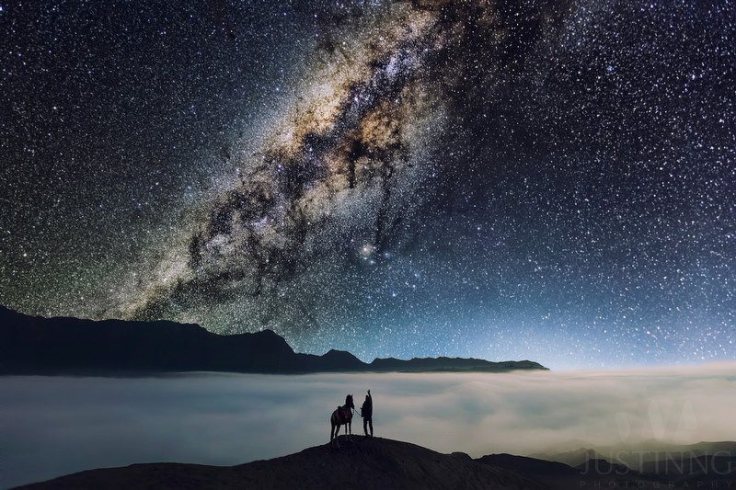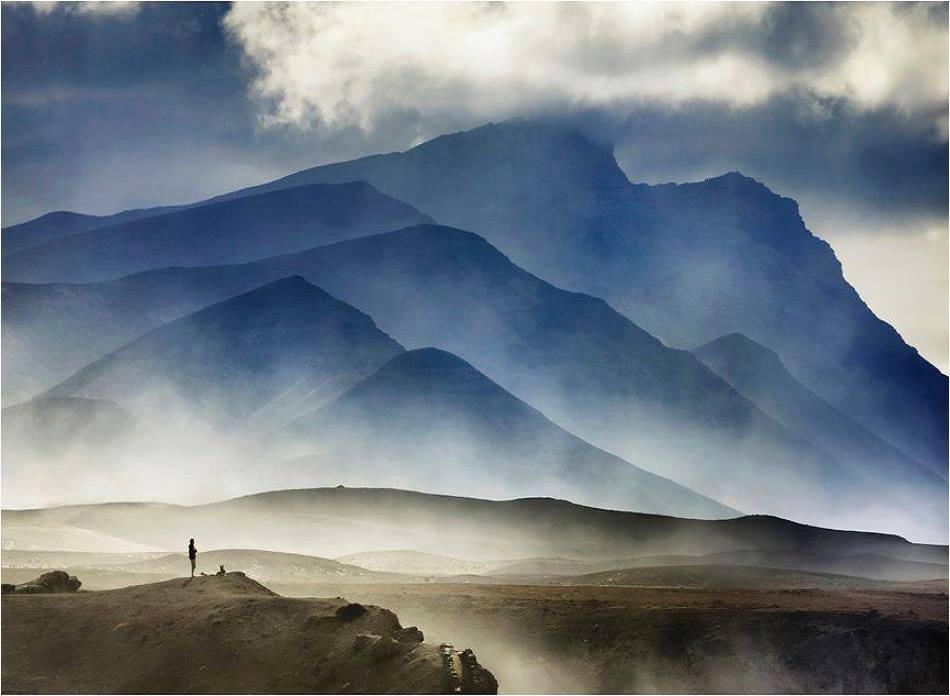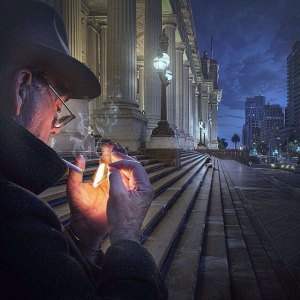
From: http://lithub.com/8-famous-writers-writing-about-not-writing/
By Emily Temple
Hey—are you writing right now? If you aren’t, and I know you aren’t, because you’re reading this sentence, it’s okay. It may seem like the phenomenon of writers constantly agonizing over not being able to write is a modern one (one of the great ironies of book Twitter is how the moment you hashbrag #amwriting you necessarily make it a lie—though let’s get real, it had probably been a lie for a while before that), but in fact, it goes back at least a century or two. Many canonical authors, whose work is now beloved by millions of readers, also wrote depressive or hand-wringing journal entries and letters about their failure to get words on the page. Writer’s block, it turns out, can (and does) happen to anyone. To prove it, I’ve pulled out a few selections from the journals and letters of a few great writers, which I hope, if you are procrastinating right now, or just in a dry spell, will make you feel feelings of solidarity and encouragement. After all, Kafka may not have written for days at a stretch—but hey, almost everyone has read at least something by him now.
 Franz Kafka
Franz Kafka
(from The Diaries of Franz Kafka, 1910-1923, h/t Open Culture)
20 January. The end of writing. When will it catch me up again? In what a bad state I am going to meet F.! The clumsy thinking that immediately appears when I give up my writing, my inability to prepare for the meeting; whereas last week I could hardly shake off all the ideas it aroused in me. May I enjoy the only conceivable profit I can have from it—better sleep.
Black Flags. How badly I even read. And with what malice and weakness I observe myself. Apparently I cannot force my way into the world, but lie quietly, receive, spread out within me what I have received, and then step calmly forth.. . .
29 January. Again tried to write, virtually useless. The past two days went early to bed, about ten o’clock, something I haven’t done for a long time now. Free feeling during the day, partial satisfaction, more useful in the office, possible to speak to people—Severe pain in my knee now.
30 January. The old incapacity. Hardly ten days interrupted in my writing and already cast aside. Once again prodigious efforts stand before me. You have to dive down, as it were, and sink more rapidly than which sinks in advance of you.
7 February. Complete standstill. Unending torments.. . .
11 March. How time flies; another ten days and I have achieved nothing. It doesn’t come off. A page now and then is successful, but I can’t keep it up, the next day I am powerless.. . .
13 March. An evening. At six o’clock lay down on the sofa. Slept until about eight. Couldn’t get up, waited for the clock to strike, and in my sleepiness missed hearing it. Got up at nine o’clock. Didn’t go home for supper, nor to Max’s either, where there was a gathering tonight. Reasons: lack of appetite, fear of getting back late in the evening; but above all the thought that I wrote nothing yesterday, that I keep getting farther and farther from it, and am in danger of losing everything I have laboriously achieved these past six months. Provided proof of this by writing one and a half wretched pages of a new story that I have already decided to discard . . . Occasionally I feel an unhappiness that almost dismembers me, and at the same time am convinced of its necessity and of the existence of a goal to which one makes one’s way by undergoing every kind of unhappiness.. . .
23 March. Incapable of writing a line.
 Sylvia Plath
Sylvia Plath
(from The Unabridged Journals of Sylvia Plath)
Monday, July 7 (1958): I am evidently going through a stage in beginning writing similar to my two months of hysteria in beginning teaching last fall. A sickness, frenzy of resentment at everything, but myself at the bottom. I lie wakeful at night, wake exhausted with that sense of razor-shaved nerves. I must be my own doctor. I must cure this very destructive paralysis & ruinous brooding & daydreaming. If I want to write, this is hardly the way to behave—in horror of it, frozen by it. The ghost of the unborn novel is a Medusa-head. Witty or simply observant character notes come to me. But I have no idea how to begin. I shall, perhaps, just begin. I am somewhere in me sure I should write a good “book poem” a day—but that is nonsense—I go wild when I spend a day writing a bad twelve lines—as I did yesterday. My danger, partly, I think, is becoming too dependent on Ted . . . I enjoy it when Ted is off for a bit. I can build up my own inner life, my own thoughts, without his continuous “What are you thinking? What are you going to do now?” which makes me promptly & recalcitrantly stop thinking and doing. We are amazingly compatible. But I must be myself—make myself & not let myself be made by him . . . I won’t get my writing schedule from outside—it must come from within. I’ll leave off poems for a bit—finish the books I’m now in the middle of (at least five!) do German (that I can do) & write a kitchen article (for Atlantic’s Accent on Living?) a Harper’s Cambridge Student Life article—a story “The Return” & suddenly attack my novel from the middle. O for a plot.
Wednesday, July 9: Prose writing has become a phobia to me: my mind shuts & I clench. I can’t, or won’t, come clear with a plot. Must put poetry aside & begin a story tomorrow, today was useless, a wash of exhaustion after the bird. Always excuses . . . I must start outlining a story plot: obviously it takes time—I half expect to fly to the typewriter & begin. Central conflict—my life is full of it. Start there. Marriage: Courtship. Jealousy. Settings I know: try Wellesley—suburbia. Cambridge apartment: Lou Healy, Sat Eve Post style. Jealousy: sister of newlywed husband. Poor poet. Couple divided over baby: why fear? Not like other men. Suburban neighborhood. I have fragments. Vignettes. Mrs. Spaulding is a story herself. I must note backgrounds jobs against which my people can move. Plagiarism in college. Young teacher. Decision to make. Start with that: 15 to 20 pages a week. Why not? Ambivalent position. Romance involved. Campus setting. I know this. Make a page of story plots & subjects tomorrow. That’s what—a paragraph on each—style & sort. Also several on “The Return.” Use Baskin. Ho ho. Everyone here. Aaron’s cocktail party. S————, James & Joan triangle. From whose point of view? Think, Think. Study sympathy point of view—emotional center—
 Virginia Woolf
Virginia Woolf
(from A Writer’s Diary)
Friday, April 8th. 10 minutes to 11 a.m. (1921)
And I ought to be writing Jacob’s Room; and I can’t, and instead I shall write down the reason why I can’t—this diary being a kindly blankfaced old confidante. Well, you see, I’m a failure as a writer. I’m out of fashion: old: shan’t do any better: have no headpiece: the spring is everywhere: my book out (prematurely) and nipped, a damp firework. Now the solid grain of fact is that Ralph sent my book out to The Times for review without date of publication in it. Thus a short notice is scrambled through to be in “on Monday at latest,” put in an obscure place, rather scrappy, complimentary enough, but quite unintelligent. I mean by that they don’t see that I’m after something interesting. So that makes me suspect that I’m not. And thus I can’t get on with Jacob. Oh and Lytton’s book is out and takes up three columns; praise I suppose. I do not trouble to sketch this in order; or how my temper sank and sank till for half an hour I was as depressed as I ever am. I mean I thought of never writing any more—save reviews . . . What depresses me is the thought that I have ceased to interest people—at the very moment when, by the help of the press, I thought I was becoming more myself. One does not want an established reputation, such as I think I was getting, as one of our leading female novelists. I have still, of course, to gather in all the private criticism, which is the real test. When I have weighed this I shall be able to say whether I am “interesting” or obsolete. Anyhow, I feel quite alert enough to stop, if I’m obsolete. I shan’t become a machine, unless a machine for grinding articles. As I write, there rises somewhere in my head that queer and very pleasant sense of something which I want to write; my own point of view. I wonder, though, whether this feeling that I write for half a dozen instead of 1,500 will pervert this?—make me eccentric—no, I think not. But, as I said, one must face the despicable vanity which is at the root of all this niggling and haggling. I think the only prescription for me is to have a thousand interests—if one is damaged, to be able instantly to let my energy flow into Russian, or Greek, or the press, or the garden, or people, or some activity disconnected with my own writing.
 Gustave Flaubert
Gustave Flaubert
(from a letter to George Sand)
You are alone and sad down there, I am the same here.
Whence come these attacks of melancholy that overwhelm one at times? They rise like a tide, one feels drowned, one has to flee. I lie prostrate. I do nothing and the tide passes.
My novel is going very badly for the moment. That fact added to the deaths of which I have heard; of Cormenin (a friend of twenty-five years’ standing), of Gavarni, and then all the rest, but that will pass. You don’t know what it is to stay a whole day with your head in your hands trying to squeeze your unfortunate brain so as to find a word. Ideas come very easily with you, incessantly, like a stream. With me it is a tiny thread of water. Hard labor at art is necessary for me before obtaining a waterfall. Ah! I certainly know THE AGONIES OF STYLE.
In short I pass my life in wearing away my heart and brain, that is the real TRUTH about your friend.
 Flannery O’Connor
Flannery O’Connor
(from A Prayer Journal)
11/6
How can I live—how shall I live. Obviously the only way to live right is to give up everything. But I have no vocation & maybe that is wrong anyway. But how [to] eliminate this picky fish bone kind of way I do things—I want so to love God all the way. At the same time I want all the things that seem opposed to it—I want to be a fine writer. Any success will tend to swell my head—unconsciously even. If I ever do get to be a fine writer, it will not be because I am a fine writer but because God has given me credit for a few of the things He kindly wrote for me. Right at present this does not seem to be His policy. I can’t write a thing. But I’ll continue to try—that is the point. And at every dry point, I will be reminded Who is doing the work when it is done & Who is not doing it at that moment. Right now I wonder if God will ever do any more writing for me. He has promised His grace; I am not so sure about the other. Perhaps I have not been thankful enough for what has gone before.
11/11
How hard it is to keep any one intention[,] any one attitude toward a piece of work[,] any one tone[,] any one anything. I find a certain peace in my soul these days that is very fine—lead us not into temptation. The story level, bah. Work, work, work. Dead God, let me work, keep me working, I want so to be able to work. If my sin is laziness I want to be able to conquer it.
 Anne Sexton
Anne Sexton
(from A Self Portrait in Letters)
November 14, 1960
Dear Nolan:
Hello. Are you okay? I’m still here, not doing much—not writing enough, not writing good strong stuff—just coasting along with all my needles threaded, too busy worrying to sew. Worrying? Well, it is a difficult period . . . one book out, most reviews in, and the feeling that I’m a fraud, that I didn’t write the thing but that I stole it somewhere. New poems come slow . . . the fun’s gone. Or maybe it’s just now, maybe soon, maybe sooner I’ll get it back. I have about 25 pages toward a second book but some of it isn’t too good . . . I am allowing myself weaknesses that I wouldn’t have permitted a while ago. Or maybe I’m wrong . . . maybe not weak. Hell-bell! I worry obsessivly (can’t spell that one) and can’t seem to feel that I’m lousy or great . . . but both. Have a feeling that they (magazine editors) take my poems without reading or judging them . . . they were my super ego. I have a large group coming out in the Spring (I think) Hudson (some that you have seen) and they are okay I guess . . . also have a group of 6 coming out sometime soon in Partisan and they are the ones that worry me. Well, just today I made up my mind that to-hell-with-it, and that I’m not going to worry if they stink. They are a bad dream that I’ll put away. Do you think that is okay? Okay, I mean, to put away bad poems like bad dreams even when you have allowed them to be printed, revealed etc. It is all I can do.
 Samuel Taylor Coleridge
Samuel Taylor Coleridge
(from Volume II of his Notebooks)
Oct 21st, 1804—Monday night—Syracuse.—O my God! or if I dare not continue in that awful feeling! yet oh whatever is good in me, even tho’ not in the Depth, tho’ not in that which is the Universal & Perfect in us, yet oh! by all the ministering Imperfections of my Nature that were capable of subserving the Good—O why have I shunned & fled like a cowed Dog from the Thought that yesterday was my Birth Day, & that I was 32—So help me Heaven! as I looked back, & till I looked back I had imagined I was only 31—so completely has a whole year passed, with scarcely the fruits of a month!—O Sorrow & Shame! I am not worthy to live!—Two & thirty years—& this last year above all others!—I have done nothing! No I have not even layed up any materials, any inward stores, of after action!—O no! still worse! still worse! body & mind, habit of bedrugging the feelings, & bodily movements, & habit of dreaming without distinct of rememberable . . .
 Iris Murdoch
Iris Murdoch
(from A Writer at War)
[in a 1943 letter to Frank Thompson]
Do I write? I’ve written only three poems & no prose in the last year. Just before that, I wrote quite a little prose. My father got one short story published for me in the Manchester Guardian and a selection of my letters without warning me in the New Statesman. But at the moment I’m writing nothing nor do I feel the urge to write. I’m suffering stagnation militaris. A change of air & proximity to the Germans will probably wake me up again. But the truth is I haven’t much to write about. I have a conventional mind formed along Wykhamical lines. Also I’m very little of an introvert. Only when writing to you or to my brother do I make an effort at introspection. And unless you are an introvert you do not have the vision to look into other people’s minds. And without that you cannot write as it is the fashion to write today. Mind you I think the psychological novel has had its day. Soviet authors I believe, are searching round for a new line of advance. Ehrenburg, when he tries straight fiction as opposed to satire, has gone back to a style as simple as Defoe’s. Personally, I think Tolstoy & Chekhov went as far into the minds of our fellow men as it is profitable or seemly to go. Gorki is, to me, an ideal novelist in this respect. No, if I had the ability to tell a story, I should not allow you to mar it with psychological interludes. But the truth is, Irushka, I have a very shallow mind & I’ve been skating round these last four years on the crust of it. If/when I return to England I look to you & other comrades to re-educate & rehabilitate me in some measure. What nonsense. This war should be developing my mind. I don’t know. I don’t know what’s happening to me. If I get through this European war I want to go to China, & then on, wherever the next phase takes place. Because this war, in which we are now engaged, may have its uneasy lulls & armistices, peace we shall NOT know until the United States of the World has been achieved. And if I get time, wandering from here to there, I may write some of the more memorable things I have seen. But about the conflicts in my own mind, not. They had far better end with the unseemly clay that bounds them.

















 Franz Kafka
Franz Kafka  Sylvia Plath
Sylvia Plath  Virginia Woolf
Virginia Woolf  Gustave Flaubert
Gustave Flaubert Flannery O’Connor
Flannery O’Connor Anne Sexton
Anne Sexton  Samuel Taylor Coleridge
Samuel Taylor Coleridge Iris Murdoch
Iris Murdoch






 by Christina Georgina Rossetti
by Christina Georgina Rossetti



 You can’t learn to write in college. It’s a very bad place for writers because the teachers always
You can’t learn to write in college. It’s a very bad place for writers because the teachers always Self-doubt can be an ally. This is because it serves as an indicator of aspiration. It reflects love, love of something we dream of doing, and desire, desire to do it. If you find yourself asking yourself (and your friends), “Am I really a writer? Am I really an artist?” chances are you are. The counterfeit innovator is wildly self-confident. The real one is scared to death.
Self-doubt can be an ally. This is because it serves as an indicator of aspiration. It reflects love, love of something we dream of doing, and desire, desire to do it. If you find yourself asking yourself (and your friends), “Am I really a writer? Am I really an artist?” chances are you are. The counterfeit innovator is wildly self-confident. The real one is scared to death.
















 I woke up this morning from a dreamy grey half-sleep
I woke up this morning from a dreamy grey half-sleep





 Got a little bit of good news this week. One of the editors of the 25th Anniversary Anthology Edition of the Austin TX. Poetry Festival reached out to me a few months ago after seeing some pieces I published here and invited me to submit some work for inclusion. In the end, they included six poems, starting on page 111.
Got a little bit of good news this week. One of the editors of the 25th Anniversary Anthology Edition of the Austin TX. Poetry Festival reached out to me a few months ago after seeing some pieces I published here and invited me to submit some work for inclusion. In the end, they included six poems, starting on page 111.



 “Two bullets. Two heads. Two dead.”
“Two bullets. Two heads. Two dead.”






You must be logged in to post a comment.